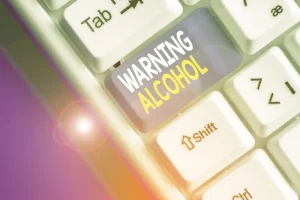
A person at this stage can barely move or stand, is prone to vomiting, and may slip in and out of consciousness. The chance of an alcohol overdose is very high here, and medical help should be sought immediately. Because the amount of alcohol needed to reach various states of intoxication can vary depending on the individual, what might be a fatal dose for one person may not be for another. Another commonly used measure of aggression is the Point Subtraction Aggression Paradigm (PSAP) where aggression is operationalized as the removal of points (money) from a fictitious opponent (Attwood and Munafo, 2014; Giancola and Parrott, 2008; Parrott and Giancola, 2007).
- If replicated, these findings have important implications for targeted interventions.
- To date there are no studies that directly investigate whether alcohol-induced aggressive behavior can be reduced through training in cognitive functions.
- Knowledge about the causal relationship between alcohol and psychostimulants, and aggression is important in law enforcement when evaluating the (aggravating) role of these substances to acts of aggression.
- If symptoms are very severe, an imaging test such as CT may be done to rule out a brain injury or infection.
- The Centers for Disease Control and Prevention estimates excessive alcohol use causes approximately 88,000 deaths annually in the United States.
- However, in a study in which peer-only reared and mother-reared subjects were studied from infancy into adulthood, the peer-only reared subjects exhibited lower CSF 5–HIAA concentrations than did the mother-reared subjects in both infancy and adulthood (Higley et al. 1996e).
Rec. Dev. Alcoholism

They were directed to engage in a task with the potential to trigger aggressive verbalizations, with those who consumed alcohol showing significantly more such behavior. After Alcohol participants reached a BrAC of 0.080% (or a period of 25 minutes after the first beverage for yoked Placebo and No-Alcohol Control participants), the experimenter collected pre-ostracism BrAC readings and subjective intoxication ratings for all conditions. Next, the experimenter left the room and participants were ostracized using Cyberball (Williams et al., 2000). When Cyberball ended, participants completed their post-ostracism Affect and Basic Needs Measure alone on the computer before starting the aggression paradigm (i.e., the TAP) with the confederate “Alex” as their ostensible opponent. Following the TAP, participants completed their post-aggression Affect and Basic Needs Measure alone on the computer.
Do alcohol expectancies mediate drinking patterns of adults?
Alcohol addiction is problem often recognized far too late, however, once its symptoms are recognized it is important to seek treatment from an alcohol rehabilitation center as soon as possible. In research settings, instances in which peers are the primary teachers of young monkeys (peer-only rearing) have been widely used to study development in monkeys. The subjects are removed stages of alcohol poisoning from their mothers at birth and reared without adults but with constant access to other age-matched infants. For example, as adolescents, when alcohol is freely available, they are prone to excessive alcohol consumption (Higley et al. 1991a), and during competitive interactions, minor episodes of aggression are more likely to escalate to severe aggression (Higley et al. 1994).
How can you help your teen say no to drugs and alcohol?
If you are concerned about someone with these symptoms, you should seek immediate medical attention. In extreme cases, serious breathing issues can occur.8 Other dangers include a higher risk for injury from fights or accidents. At 0.45 BAC or above, many people are unable to sustain essential life functions, and the risk of respiratory arrest and death occurring is almost certain. At this stage, those around the individual will likely notice that they are visibly intoxicated. The funder had no role in selection process of the reviewed articles, the decision to publish, or preparation of the manuscript. When someone is experiencing intoxication, there are strategies that can help them cope and remain safe.
- Additionally, they reported higher alcohol use and hostile sexism than those lower in mental rigidity.
- This study investigates predictions informed by Alcohol Myopia Theory to observe how alcohol influences changes to one’s affect, basic needs fulfillment, and aggression following ostracism.
- They might “black out” without actually losing consciousness and may not be able to feel pain.
- This was a massive study of 33,215 individuals with no history of active military combat.

Additionally, this information should also be taught in schools to expand their understanding and hopefully reduce the prevalence of alcohol-related aggression. Researchers evaluated the failure to consider future consequences as a significant risk factor for aggression (Bushman et al., 2012) In this study, 495 social drinkers were assigned to a group that consumed alcohol or a placebo group. They were also required to respond to the Consideration of Future Consequence Scale (CFC). It was found that those scoring lower became significantly more aggressive than those who had higher ratings on the CFC. The findings were explained by emphasizing that concern for the future involves greater prefrontal cortex resources that help inhibit the excessive impact of alcohol.
The relationship between chronic alcohol consumption and aggressive behavior
Around 30 people per day die from drunk-driving accidents in the United States. They might just pass out at this point, and they must be cared for because it is also possible that their gag reflex will be affected. Choking on one’s vomit would be disastrous and may even be fatal, so we have to monitor people reaching this stage closely. They do not know what is going on and cannot remember what happens, making it very dangerous.

The Six Stages of Alcohol Intoxication: How Dangerous Is Too Much?
H1: Alcohol Will Moderate Affective Reactions to Ostracism


